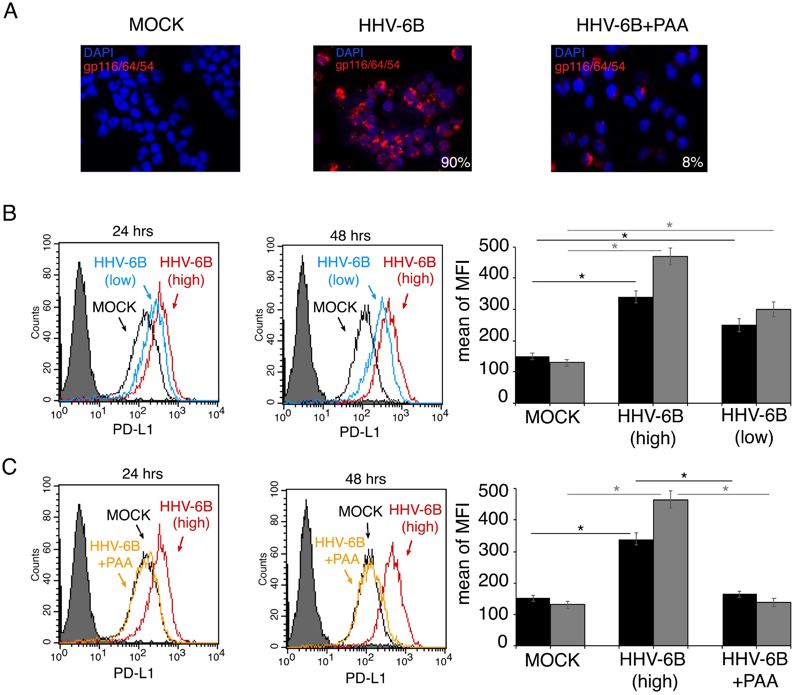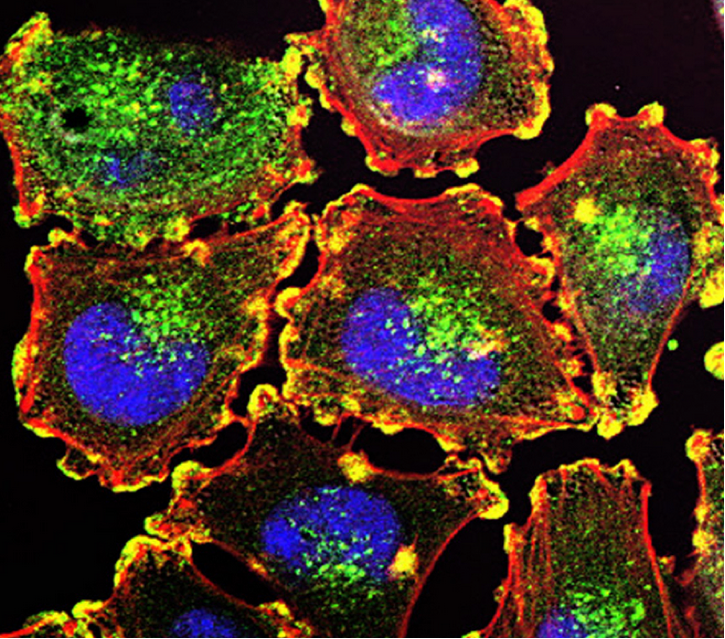PD-L1/PD-1 interactions restrict the immune response. While blockage of this interaction is best known for its role in the immune response to cancer, PD-L1/PD-1 interactions also affect the immune response to viral infections. Indeed, several herpes viruses, such as Kaposi’s Sarcoma-associated herpesvirus (KSHV) and Epstein-Barr Virus (EBV), have been found to upregulate this interaction, which allows the viruses to invade the immune response.
Romeo et al. of the Sapienza University of Rome evaluated the effect of HHV-6B infection of primary monocytes on PD-L1/PD-1 interactions, production of reactive oxygen species (ROS) and various cytokines.
Infection of primary monocytes by HHV-6B (but not mock infection) upregulated the production of both the cell-associated and soluble forms of PD-L1, in a dose and time-dependent fashion. Phosphonoacetic acid was able to reduce this effect, indicating that viral replication was necessary for PD-L1 upregulation (Figure 1).

Figure 1 - Counts of cells against quantity of PD-L1 with HHV-6B with and without phosphonacetic acid (PAA) and mock infected cells (MOCK). IFA was used to assess HHV-6 infection - Romeo 2021
HHV-6B infection of primary monocytes also was followed by an increase of intracellular ROS activation of the STAT1 and STAT3 pathways, increased release of pro-inflammatory cytokines, and reduced survival of the infected monocytes. Experiments suggested that crosstalk between ROS and STATs is important in the upregulation of PD.
This is the first study to demonstrate PD-L1 upregulation by HHV-6B, demonstrating another mechanism by which HHV-6B might be able to induce immune suppression.
Read the full article: Romeo 2021

